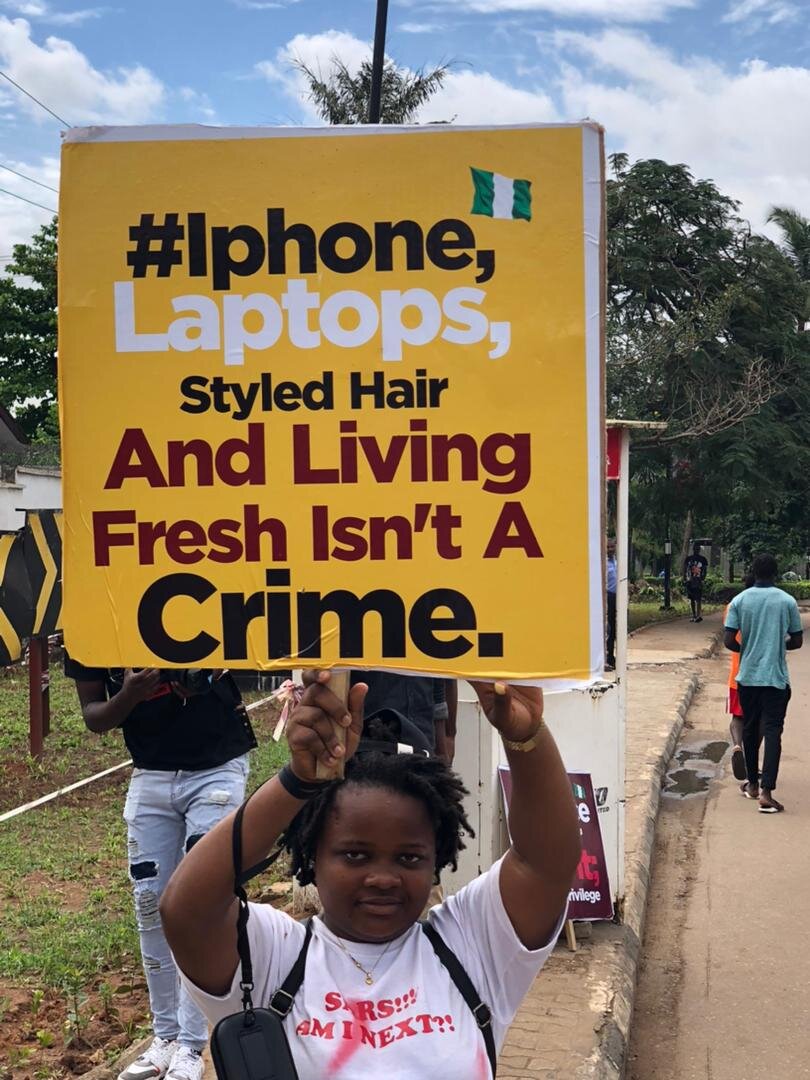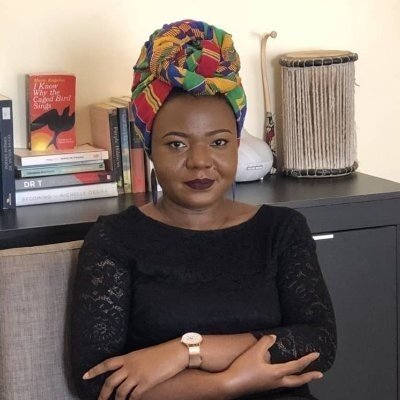In October of last year a brutal killing at the hands of Nigerian police was captured on video. It quickly went viral across the country, across, Africa, and then around the world. The police involved in the killing belonged to Nigeria’s SARS unit, short for “Special Anti Robbery Squad”. The notorious SARS unit has long been known for acts of extortion, abuse, sexual harassment and violence, torture, and murder, and as the #EndSARS hashtag started to trend on social media, young Nigerians poured out onto the streets to protest and to voice their outrage against SARS and against the corrupt and oppressive system that it has come to exemplify.
The #EndSARS movement started to gain more international attention as members of the massive Nigerian diaspora organized protests and raised supports, and as parallels between the demands of Nigeria’s youth and the demands of #BlackLivesMatter became more prominent.
Our guest today, Rinu Oduala. A 22 year-old woman in Lagos, Nigeria, Rinu played a key role in the viral #EndSARS campaign, helping to mobilize both Nigerian youth and international support. This episode should be a valuable source of information not just for those following Nigeria and Africa, but for those who wish to see systemic change against police brutality and impunity, and government complicity, around the world.
This episode also marks our first selection for Black History Month. Look for more episodes in February and be sure to check the links to previous episodes below.
Additional Resources:
Previous Episodes to Check Out for Black History Month:









